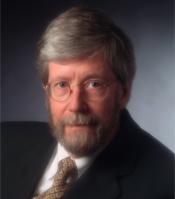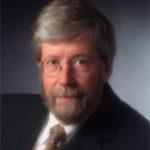
Dr Paul Kincade (source: The American Association of Immunologists, Paul W. Kincade Profile)
Our July Immunologist of the Month is Paul W. Kincade, Scientific Director of the Oklahoma Centre for Adult Stem Cell Research. Dr Kincade studied Zoology and Biochemistry at Mississippi State University, where he met Bruce Glick and joined his lab for his Master studies. He then moved to the University of Alabama in Birmingham, where he got his Ph.D. under the supervision of Max Cooper. After 8 years working as Associate Member of the Sloan-Kettering Institute, he joined the Oklahoma Medical Research Foundation (OMRF) as a Staff-Scientist in 1982. Dr. Kincade is the founder (or one of the founders of) of the Oklahoma Center for Adult Stem Cell Research where he remains as Scientific Director. While he was President of the American Association of Immunologists and then the Federation of American Societies of Experimental Biology. Dr Kincade recently participated in a Careers Development Session at the ALAI-SMI conference in Cancun, Mexico. The immunopaedia team conducted a special interview focusing on advice for young immunology scientists, as Dr. Kincade expressed a special interest in training and career developement.
Name: Paul W. Kincade
Position: Past Head of the Immunobiology and Cancer Program and Vice President of Research, OMRF. Scientific Director at the Oklahoma Center for Adult Stem Cell Research.
Research Interest: Early fetal and adult developmental stages of the lymphoid differentiation pathway.
What have you learned over this time about the motivation of the postgraduate students in biomedicine? Are their only chances to reach their goals working in academia? The most important thing is matching careers with individuals. I have seen many trainees aspire and work for years on the wrong path. Success in biomedical science has almost no relationship with academic ability and even less than you would think to education. Trainees should keep an open mind and consider as many career options as possible. We need dedicated clinicians, administrators, staff-scientists and teachers more than principal investigators.
What would you say are the key points to consider when writing a grant in order to propose a competitive and “juicy” project? I don’t think I ever proposed experiments in a grant that I did not really want to do. How can you “sell” it [proposal] if you don’t really believe it is exciting, important and feasible? I encourage scientists to wait or take other directions when that isn’t the case. Submitting a grant you are not proud of is unlikely to fly and may poison the well.
The next important thing is telling a simple story. The reviewer should know what you plan to do within the first three sentences of the Abstract and Aims [page]. Why is the work timely and what new perspective do you have? This brings me to the second important thing to scientists. You need to “differentiate”. If your work represents incremental advances and coincides with the latest fads, you will not stand out. Be willing to modify your plans and explore unexpected findings.
There are many “how to” books and articles that tell you how to write articles, write grants and run a laboratory. These are skills that can be learned, and especially if you have good tutors. Skype and Google make it possible to get help throughout your career from friends and former colleagues anywhere in the world.
What would be your advice on ethics in research and protocol submission? Credibility is the most valuable thing any scientist can have. People must believe you are a trusted authority and one who has the highest standards of accuracy. We all know scientists who smooth their data or loosely interpret findings. This is unlikely to be something you explicitly say, but it will factor in when you evaluate their job applications, publications and grants. On the other hand, you hope credible scientists are publishing, designing human clinical trials and evaluating your own work.
How does one achieve a critical [research group] mass? There are still a few areas of medical research that can be productively investigated with a small team. However, that is steadily becoming less the case. Top journals allow and expect large amounts of “supplemental” data and it is important to have access to new technology. However, it is not necessary to have a fifty person lab if you collaborate productively within your institution and elsewhere. I like collaborations that form when useful and dissolve when they are no longer needed.
What is your view about future science and global priorities? I must admit that I never gave this much thought. Breakthroughs in technology are propelling discoveries at an astonishing rate, so we can expect new treatments to follow. I always passed on an old saying to my students: “If it is not worth doing, it is not worth doing well.” That is, one should seek good questions rather than opportunities to exploit new methods.
Interview by Jennifer Enciso
